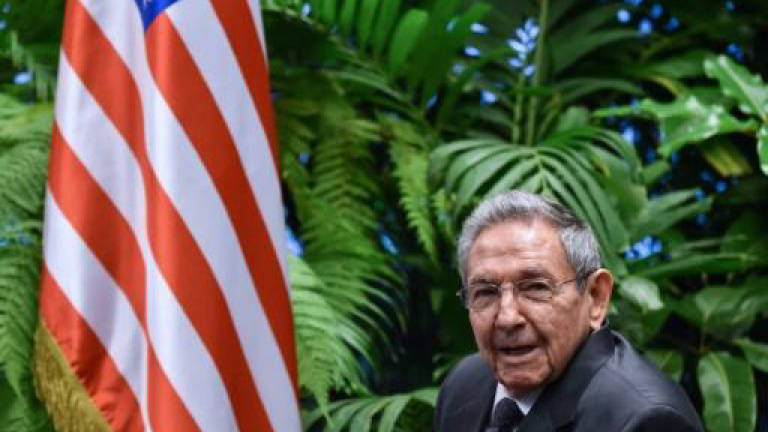Analysts see same old US tensions as Cuba gets new leader

WASHINGTON, United States: With Donald Trump in the White House, the end of the Castro era in Cuba next week is unlikely to bring warmer relations, analysts say.
President Raul Castro will step down on April 19, ending nearly 60 years of Castro family rule after his brother Fidel seized power during the 1959 Communist revolution.
Decades of Cold War tension with the United States followed until Trump's predecessor Barack Obama and Raul Castro in December 2014 announced a warming of relations.
The two countries reopened their embassies and Obama made a historic visit to Cuba in 2016.
But Trump vowed to crack down when he assumed office in January 2017. He tightened restrictions on US travelers to Cuba, and relations have cooled.
Raul Castro's Vice President Miguel Diaz-Canel, 57, is poised to assume the presidency — but his ascension still needs to be formally confirmed.
He would be the first Cuban leader not to have fought in the revolution, but analysts say US domestic politics will play a more crucial role in shaping Havana-Washington ties.
"Unless Diaz-Canel or another comes along and changes things radically, I don't imagine there is going to be much change," said Elizabeth Newhouse, director of the Cuba program at the Centre for International Policy, a Washington-based research, and advocacy group.
This is because it will not do Trump any good politically to change his views towards Cuba, she said.
His supporters in Florida — a state whose lawmakers lead the way on Cuba policy — "want to see this relationship in some kind of freeze, exactly where it is right now," Newhouse told AFP.
If Diaz-Canel assumes power he will not significantly change the relationship, added Mavis Anderson, a Cuba specialist at the Latin American Working Group which has pushed for a thawing of tensions.
The ball is in the US's court right now and that is "sad because the court is broken," she told AFP.
Anderson and Newhouse agreed that Trump's administration has put foreign policy into the hands of hardline conservatives, including Mike Pompeo — still to be confirmed as secretary of state — and National Security Advisor John Bolton.
At the same time, the Cuba-specific policy is led by a pair of ultra-conservative legislators of Cuban origin: Senator Marco Rubio and Congressman Mario Diaz-Balart, both of Florida.
In this environment, analysts said an obvious first step would be to leave behind the controversy over mysterious "attacks" on the health of diplomats in Cuba and make the US embassy in Havana fully operational again.
'His hands are tied'
In March, the State Department said it will permanently scale back its mission to Cuba, which had already been operating with a reduced staff since September 2017, when diplomats and relatives were evacuated because of the health incident.
In all, at least 24 US envoys and family members fell ill with symptoms that resembled concussion but with no exterior signs of trauma, leaving investigators baffled.
The strange illnesses were not only confined to the US embassy. In Jan, a senior Canadian official said 27 Canadian diplomats and family members were tested after complaining between April and Dec of dizziness, headaches, nausea, nosebleeds or sleeplessness.
Newhouse noted that Philip Goldberg, the new interim charge d'affaires at the US embassy in Cuba, "would like to see the relationship moving forward. But his hands are tied".
The Havana embassy has now been declared an "unaccompanied post" where staff is not joined by families.
This designation must end as it "is causing harm to the Cubans", Anderson said.
Although much of the decades-old US economic embargo against Cuba remained entrenched in law, Obama's administration began to loosen some rules, particularly with the aim of boosting travel.
Trump tightened those regulations again.
"The rapprochement process is stagnant but it can be revived if the US administration changes," said Pedro Freyre, a Cuban-American lawyer specializing in bilateral relations.
He said he is "cautiously optimistic" about better US-Cuba ties.
"The conditions that make Cuba attractive and those that make it difficult are still there." — AFP